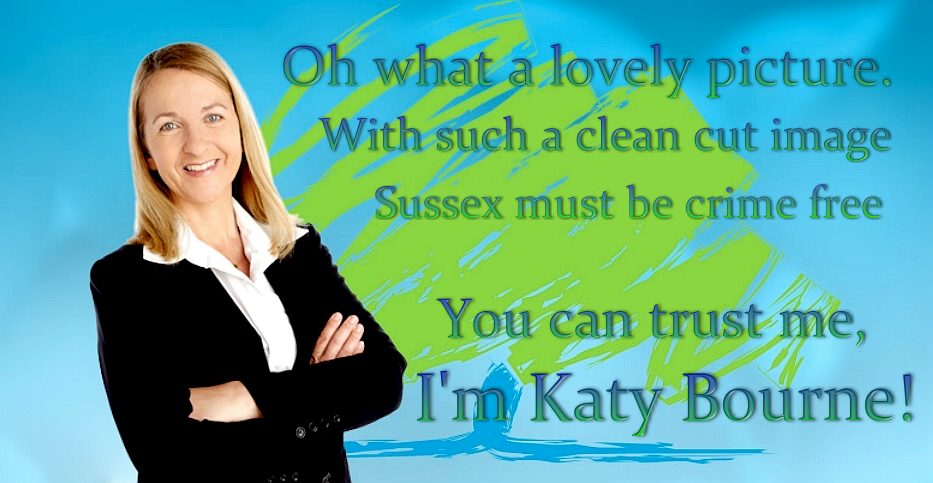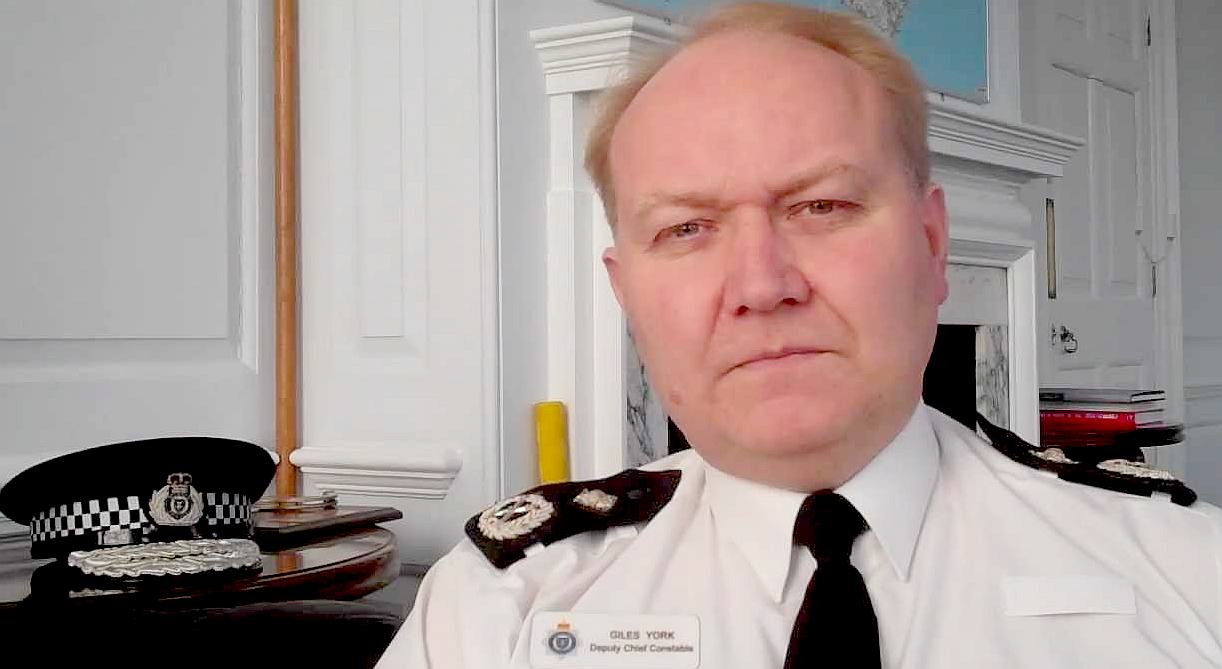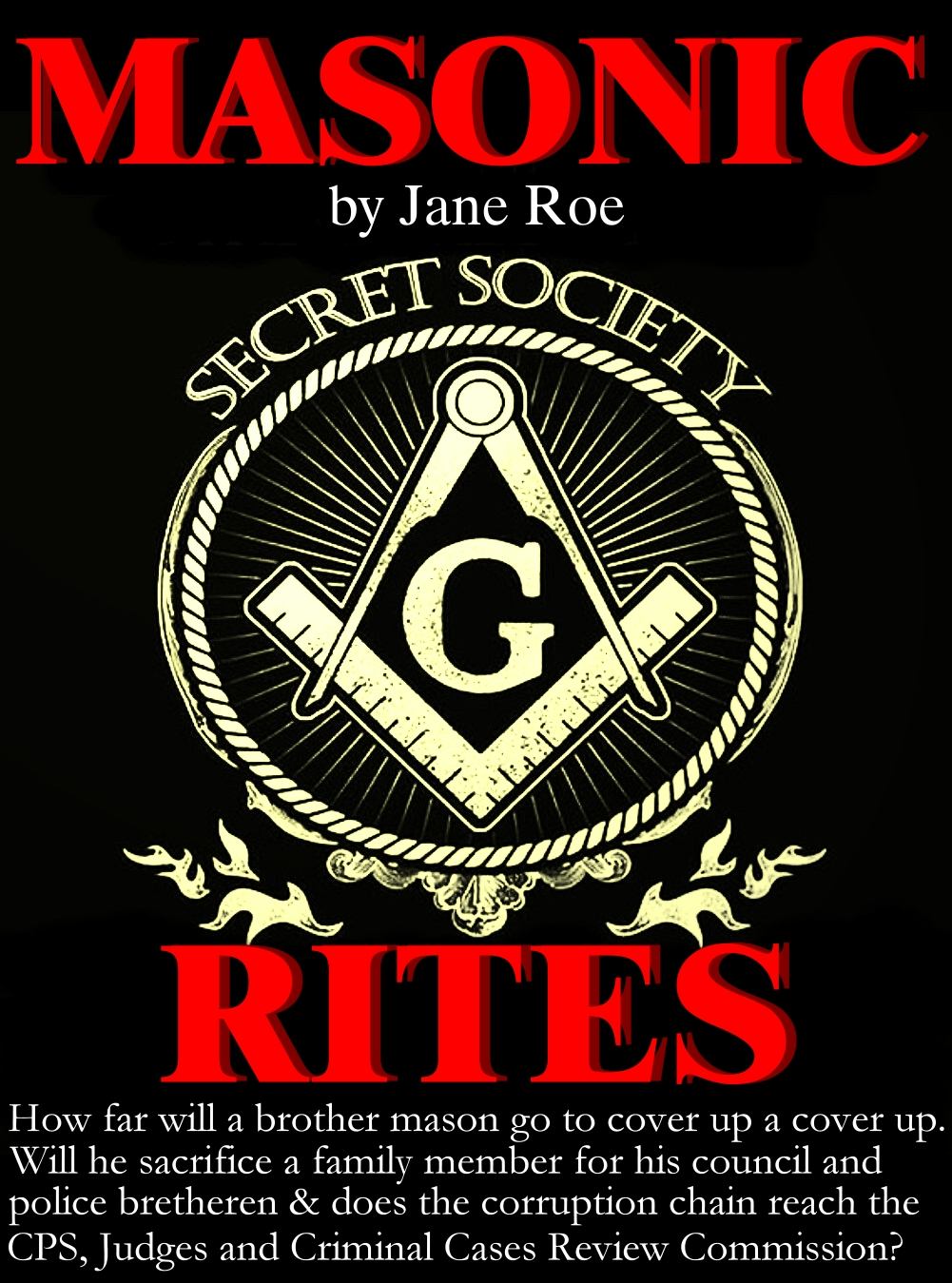|

Jeremy
Paine and Adrian Wain were two of the investigating officers from Sussex
police in the case of Sion
Jenkins and the Billie Jo murder in Hastings.

1997:
Billie Jo Jenkins murder is investigated by Detective Superintendent Jeremy Paine.
1998: Conviction of Siôn
Jenkins. Jeremy Paine becomes Head of Sussex Drugs Squad.
1999: Jeremy Paine becomes a Crimewatch presenter and a media celebrity.
January 2000: First appeal dismissed. Jeremy Paine is the star of ‘Trail of Guilt’, a BBC film glorifying Sussex Police’s conviction of Siôn Jenkins.
July 2000: Jeremy Paine speaks about the case at a Forensic Science Society conference with three pathologists (whose evidence was later discredited at Appeal).
2001: Jeremy Paine leads the Sarah Payne investigation.
2001: Jeremy Paine becomes Head of Sussex CID.
2002: Jeremy Paine launches the Child Rescue Alert initiative after visiting California to research a similar operation.
2002: Jeremy Paine is called in to advise on the Milly Dowler case.
2002: Jeremy Paine becomes Head of Sussex Police Crime Management Department.
2003: Jeremy Paine speaks at a Forensic Science Society conference on How the media affects the Criminal Justice system.
2004: Jeremy Paine, Chief Superintendent, in charge of Operation Otter.
2005: Jeremy Paine becomes Divisional Commander, Brighton.
2006: Jeremy Paine becomes Assistant Chief Constable for Sussex and Vice Chair of the Sussex Criminal justice Board.

BAFFLED
- A retired assistant chief constable told a misconduct hearing today he could not understand why a PC accused of persuading a suspect to have a criminal interview without a lawyer would later call to alert his father to evidence potentially proving his innocence.
This week a misconduct hearing was opened into allegations Metropolitan Police PC Clifford Fox, based in Hackney, used his influence to dissuade Joey Doherty from asking for a lawyer on February 23, 2014 and making improper contact with Joey’s family to incite them into making a complaint against a colleague.
Earlier today Joey’s father Trevor told the hearing he initially thought “nothing” of Joey’s police caution as he believed it was a “rap on the knuckles” for disorderly behaviour and was shocked when PC Fox called him out of the blue to warn him about rumours Joey was falsely accused of assaulting an officer.
PC Fox also alerted him to CCTV contradicting the claims against his son, he said.
Mr Doherty rang Joey’s uncle Jeremy Paine, a former Sussex Police Assistant Chief Constable for advice.
When he first heard about his nephew’s caution, which has since been cancelled, Mr Paine simply thought he was an “idiot” for getting in trouble with the police, he said.
But after hearing about the mysterious alleged phone call from PC Fox, he spoke to Joey in detail about the night of his arrest and called the officer himself to “get to the bottom of” the issue.
PC Fox initially refused to speak to him, Mr Paine said, but later offered to obtain the CCTV footage he told Trevor Doherty about.
The police constable also told him he had heard the officer who Joey was accused of hitting was “always lying and making up evidence…Joey was not being aggressive” and an officer who was on scene said he saw Joey being kneed.
PC Fox stopped picking up the phone and Mr Paine obtained the CCTV footage via a solicitor, he said.
“It’s slightly baffling where all this was coming from, to this day I don’t know what his motivation was to contact Trevor other than perhaps he wanted to see justice done and we have to take what he said at face value.
“I felt there was conflict in the evidence. Frankly I remain sceptical - I’m very sceptical about the original incident. Frankly I remain absolutely horrified by what I can see on CCTV.
“I remain highly suspicious the officer [Joey’s alleged victim] did not tell the truth.”
Mr Paine said he spent the next nine to ten months trying to find out what happened but was “getting nowhere” with the local borough.
So he lodged an official complaint in December 2014 with the MPS.
In the complaint he detailed allegations Joey made to him in February 2014 that PC Fox “whispered in his ear” that if he decided not to ask for a solicitor he would be able to leave the station within an hour or two.
PC Fox was not on the scene at the time of Joey’s arrest but was responsible for moving him from Wood Green to Stoke Newington Police Station.
Ben Summers, PC Fox’s lawyer, asked Mr Paine: “Why on the one hand would he [PC Fox] be leaning on Joey not to have a solicitor? Does it not occur to you that would be slightly incompatible?”
Mr Paine responded: “It’s not incompatible. It’s just life and strange behaviour.
“People do things on the spur of the moment.”
ONWARDS
& UPWARDS
The arrest of Siôn Jenkins in March 1997 satisfied a national clamour for a result, and took the pressure off Sussex police.
Today the role of Jeremy Paineinvites close analysis. His meteoric rise to fame is rooted in one of the worst miscarriages of justice in legal history.
In 1997 Paine had been promoted to Detective Superintendent only days before leading the investigation in the Jenkins case. New to the role and ambitious, he was driven by the desire to see Siôn Jenkins convicted and to raise his own profile. His attitude to Siôn Jenkins developed into a personal vendetta, an obsession which distracted him from what should have been his proper aim: to find evidence leading to the person responsible for the brutal killing of Bille-Jo Jenkins.
The reality is that he failed to do so. His opinion that Siôn Jenkins was guilty was far stronger than any factual evidence.
June 2001: Cumberland Lodge
By June 2001, three years after the conviction of Siôn Jenkins, Jeremy Paine was a speaker at a ‘St Catherine’s Conference’ held at Cumberland Lodge in Windsor Great Park. Clearly confident in his own skills after establishing himself as something of a celebrity, he was there to talk about ‘The use of the media as a tool’. At this stage Siôn Jenkins was in Wakefield Prison, his appeal having failed eighteen months earlier.
Paine outlined his approach to the media in the Jenkins case and two other subsequent, high profile cases he was involved in. Referring to Billie-Jo Jenkins, the conference notes relate:
The first photograph that appeared in the press of Billie with her glases on, as a school girl, produced a limited response. The next morning a different photo of her was put outshowing her as an attractive young girl, without glasses. The press went berserk, just changing those two photographs, from the one with the glasses to the one without, triggered massive interest.
Could Paine really have been unaware of the kind of interest that photograph would generate, and how it would influence the coverage the case would receive in the media?
The conference notes continue:
The police arrested Siôn within a week but had to release him on bail because they didn’t have enough evidence. Jeremy then had to face the media to explain his release. It was enormously difficult to sit in front of the press answering questions about why it had been ‘messed up’, whether there was a killer out there and what the police were doing about it. The best approach was to be totally honest and impassionate (sic) about what the police were trying to do; this seemed to make the journalists empathise. There was good reason to think that Siôn Jenkins had carried out the murder but the evidence was not overwhelming.The police decided that they would make sure the media knew this so if Jenkins was found not guilty they would have all the facts…
Bizarrely, the empathy of journalists for the police seems to have been more important to Paine than the fact that the evidence was ‘not overwhelming’. This insight into his own version of events indicates that the chief priority was for the police to seem to be right whatever the outcome.
The lack of compelling evidence was clearly no obstacle to Paine’s need to show himself to be right.
It is worth noting that within a fortnight of Jeremy Paine’s performance at Cumberland Lodge, the Chief Constable of Sussex, Paul Whitehouse, was forced to resign because of the force’s mishandling of the James Ashley case in 1998, and the then Home Secretary spoke of the need to restore public confidence in Sussex Police. All was not well.
March 2004 :Jeremy Paine speaks
In an article in The Independent on 06 March 2004 Jeremy Paine makes the emphatic statement “I would not have charged him with murder unless I was utterly convinced he was guilty of this crime. I remain convinced of it.’
Really ?
But then, he would say that, wouldn’t he? That’s been the problem all the time.
Somehow, though, his comment has a hollow ring to it.
July 2004: protesting too much?
The immediate comment from Chief Superintendent Jeremy Paine following the appeal result was that Sussex police had not been criticised in any way. He barely alluded to the fact that Siôn Jenkins’conviction — till now a jewel in the crown of Sussex police — had been deemed unsafe. His reaction had a rather defensive tone.
The fact remains, though, that the way the police dealt with the children was criticised by judges on both previous occasions when this case has been before the courts.
It is important not to forget the prejudicial interview, conducted by police on 20 March 1997, with Siôn Jenkins’ daughters, in the presence of their mother — but in the absence of the family’s social worker. Ian Vinall had a statutory duty to be in attendance. He was meant to stand as an advocate, there to safeguard the best interests of the children. This was, in effect, a failure of child protection which had far-reaching consequences. At the very least, this disturbing experience was likely to have had some influence on the childrens’ recollection and interpretation of events.
It is worth noting this extract from the appeal judgement of 1999, in which appeal judges refer to the comments of Mr Justice Gage at the original trial.
“84. The judge said that it might have been better if the police officers themselves had not conducted the session of 20 March, and if matters such as the appellant’s alleged deception to obtain his teaching post, and violence towards the children and their mother had not been mentioned. We agree, and would be inclined to express our concerns about this aspect of the investigation rather less circumspectly.”
The criticism of Sussex police voiced on those two occasions is as serious today as it was twenty years ago.
The Jenkins case launched the celebrity career of Jeremy Paine, whose chief claim to fame was that he had solved the Jenkins murder. The following link to the BBC website used to highlight the fact. Once the second appeal was imminent, all reference to the Jenkins case was excised from his ‘Crimewatch’ presenter profile, though much was made of his role in the Sarah Payne case and the Abducted Children initiative. Today his BBC ‘Crimewatch’ profile no longer graces the BBC website.
Jeremy Paine retired from his role as Assistant Chief Constable of Sussex in 2010.
For the past twenty years a murderer has walked free, remains free, and could still be a danger to children. Yet Jeremy Paine managed to slip the tether of the Jenkins case and soar to great career heights before fading out of sight.
Spin rules: the Jeremy Paine story has been carefully airbrushed for public consumption.

Katy
Bourne was elected Crime Commissioner, taking office with an oath to serve
the public interest. That is an oath that many are now questioning, where
she appears to be serving Sussex Police instead of policing the
organisation that has come under such flack for their blatant refusal to
investigate so many complaints of malfeasance in public
office.
THE
CODE OF CONDUCT
Not
many people get a reply to their correspondence even when reporting
serious crimes, but this force will spend £10,000 of public money attempting
to prosecute a person for goods to the value of £19.99, where that person
is a thorn in the side of their chums at Wealden District
Council.
On
the other side of the coin, this force appear hesitant to investigate complaints
involving £ hundreds of thousands of pounds in connection with land fraud and manipulation
of land values, totally ignored by the crime
commissioner, Katy Bourne.
SIMILAR
FACT EVIDENCE
There
are too many cases that demonstrate failures in investigations, for this
to be a coincidence. Certain individuals that fall foul of Wealden
District Council almost invariably end up being wrongly imprisoned or
otherwise with a criminal record, or facing some kind of charge. This is one of Weaden's favourite ploys
for disposing of cases where they have been caught red-handed tampering
with or otherwise falsifying evidence in neighbour disputes, where Wealden
DC have taken the side of the more influential citizen - instead of
investigating matters impartially and
honestly.

SUSPENSION
- Deputy Chief Constable of Sussex Mark Jordan was suspended following a report on the shooting of
James Ashley, 39, at his home in St Leonards, Sussex.
Another example of police corruption in the Gestapo
like state that we are in danger of becoming.
MISFEASANCE
& MALFEASANCE
When
an officer of the courts' omits to include evidence that he knows is
relevant to a hearing, that is termed misfeasance in public office.
Where an officer then tries to cover up his or her misfeasance (as did
Ian Kay in the Stream Farm matter), that becomes malfeasance. The
difference is that misfeasance is a civil wrong, whereas malfeasance is
a criminal offence. The leading case
precedent on malfeasance is: R. v Bowden
1995 Court of Appeal (98 1 WLR). In this case Bowden was a police
officer who saw a crime in progress and walked away from it, calling in
sick the next day to seek to cover up his wrongdoing.
If
you are the victim of a wrongful prosecution or the police are refusing
to investigate a crime you might think of taking your case to the
Independent Police Complaints Commission (IPCC), we would though advise
that in serious cases of institutionalized corruption, that you should
first lodge copy of your complaint with the Attorney General, Lord
Chancellor and the Prime Minister of the
day, David Cameron, who is responsible for
running our administration under a mandate from the current Ruler
of the United
Kingdom.

ANY
MASONS ON YOUR BEAT? - What of Sussex Police. They have been asked if
a member of the public can view their Register of Interests, with an
especial leaning toward Masons. The
real question is: "Do they have such a register?" If they do,
will it be accurate - and if so will it reveal the links between
complainants where we know that others masons who are civilians have
instigated or at least pushed for the prosecution of another civilian that
they have fallen out with.
According
to the independent research into police Masonry, Martin Short, author of
the most detailed account of modern British freemasonry, 'Inside The
Brotherhood,' estimates that 20% of London officers belong to Masonic
lodges. He says there is cause for concern about this and in December, he
gave evidence to the Select Committee inquiry of a case he had researched
recently in Lancashire which, he told them, “demonstrates just how badly
the administration of justice can go wrong when police, Crown Prosecution
solicitors and private citizens are all in the same Masonic lodge.”
This story began one night in 1988 when two Leicester businessmen were
taking a late-night drink in a hotel in Blackburn. A group of burly
strangers in dinner jackets ordered them out of the bar. The Leicester men
declined to go. The strangers then announced that they were policemen and
proceeded to beat them up. They then called other police who arrested the
two Leicester men and charged them with assaulting police officers. When
the Leicester men were released on bail the next morning, they found that
the hotel manager had seized their belongings until they agreed to pay for
damage caused by the fight and that someone had let all the air out of
their car tyres and removed their hub caps.
The Blackburn police and Crown prosecutors
pursued the case to court, where the two Leicester men faced substantial
jail sentences for allegedly assaulting policemen. But the case fell
apart. The jury rejected all of the police evidence and found that the
Leicester businessmen were not guilty of any offence at all. The judge
signalled his own view by taking the unusual step of ordering that the
defendants’ costs should be paid out of the public purse. The two men
then sued for assault, wrongful arrest,
malicious prosecution, conspiracy
to injure and libel. In an out-of-court settlement, they were awarded
£170,000, most of which was paid on behalf of the policemen by the
Lancashire force.
Martin Short told the Select Committee that freemasonry was at the heart
of this case. The two Leicester men had stumbled into the tail-end of a
Masonic event, a dinner organised by the Victory lodge of Blackburn. This
lodge, said Short, is dominated by police officers: the policemen who were
involved in the original fight, the officer who subsequently investigated
the incident, a senior official in the Crown Prosecution office which
handled the case, and the manager of the hotel where the dinner took place
were all members of the Victory lodge.
IPCC
CONTACTS
Independent Police Complaints Commission
PO Box 473
Sale, M33 0BW
Switchboard:
0300 020 0096
Email: enquiries@ipcc.gsi.gov.uk
Hard of hearing: 18001 0207 166 3000

BROTHERS
IN ARMS - The masons have
been linked to the Knights Templar and Satan
worship where some of their more extreme ideals have been taken from the
Crusaders of old, mixed with satanic rituals as part of the ceremonial
induction to the international secret society. Part of these rituals
require an oath to protect brother masons at any cost, disregarding the
law of the land and the morals that make us human and decent Christians
regardless of faith.
But
just
how far will a brother mason go to help another mason? Will he sacrifice
the mental
stbility of a family member to help the police and his council cover up
a cover up, or is he also a victim of the
Grand Lodge and brother mason peer pressure. Just how far up the justice
chain does masonic influence extend. Does it include Judges, the CPS and
Criminal Cases Review Commission. In this book by Jane Roe, the
machinations of the justice system are explored where police
corruption and lack of transparency reach as far as the High Court. You
just could not make this stuff up. This book will not be made available
in the United Kingdom. But it is a volume that shows other countries and
foreign investors just how bad Britain has become - where if your face
does not fit - the police and courts can be used to oust you and there
is no accountability or process to regain justice.
Based on a true story, the names and locations of the characters have
been changed to protect the victim of a frame-up who was sent to prison
for rape, where the girl making the claim was
still a virgin
and other evidence proving innocence was suppressed by the CPS.
The British
justice system is so corrupted that the Crown
Prosecution Service still managed to gain a conviction for their
brother mason where one of the most corrupt
police forces in England needed to cover up their cover up of
council planning frauds. There is no right of appeal in the United
Kingdom in denial of Article 6 of the Human
Rights Act 1998, because the criminal justice system has been pared
to the bone to counter prolific Government borrowing that the nation
cannot afford. The Criminal Cases Review Commission openly discriminate
between cases where incompatibility in referrals are commonplace, signaling
favours for masonic chums in the provinces. Copyright © cover design
Horse Sanctuary Trust UK 20 October 2018. All rights reserved.
SUSSEX
POLICE A
- Z OF OFFICER INVESTIGATIONS
Aran
Boyt
Chris
Sherwood
Colin
Dowle
Dave
Tye
Jane
Rhodes
Jo
Pinyoun
Joe
Edwards
Giles
York
Gordon
Staker
James
Hookway
Kara
Tombling
Keith
Lindsay
Keith
Stoneman
Ken
Jones
Maria
Wallis
Mark
Jordan
Martin
Richards
Neil
Honnor
Nigel
Yeo
Olivia
Pinkney
Paul
Whitehouse
Peter
Coll
Robert
Lovell
Sarah
Jane Gallagher
Sir
Ken Macdonald QC
Timothy
Motram

LINKS
& REFERENCE
https://police.community/topic/175695-former-acc-baffled-by-pc-who-allegedly-tipped-off-suspects-family/
http://news.bbc.co.uk/1/hi/uk/282279.stm
http://www.dailymail.co.uk/news/article-3272305/Senior-policeman-suspended-late-night-race-row-threatening-taxi-driver-s-licence-taken-him.html
http://news.bbc.co.uk/1/hi/uk/293039.stm
http://www.nickdavies.net/2001/05/01/chief-police-officers-in-disarray/
http://www.eastbourneherald.co.uk/news/local/queen-s-police-medal-honour-for-chief-constable-1-6504564
http://www.bbc.co.uk/news/uk-england-sussex-28091706
https://www.ipcc.gov.uk/

Vicarage Lane, Hailsham,
East Sussex, BN27 2AX T: 01323 443322
LINKS & REFERENCE
http://www.bbc.co.uk/pressoffice/pressreleases/stories/2004/05_may/24/crimewatch.shtml
https://www.sussex.police.uk/about-us/senior-leaders/
http://shadowsussexpolicecrimecommissioner.blogspot.co.uk/2016/01/three-new-cases-to-rock-sussex-police.html
http://www.sussex.police.uk/
http://www.wealden.gov.uk/



Paul
Whitehouse (1993-2001) Ken
Jones (2001-2006) Joe
Edwards (2006-2007) Martin
Richards (2008-2014) Giles York (2014
>>)
|








